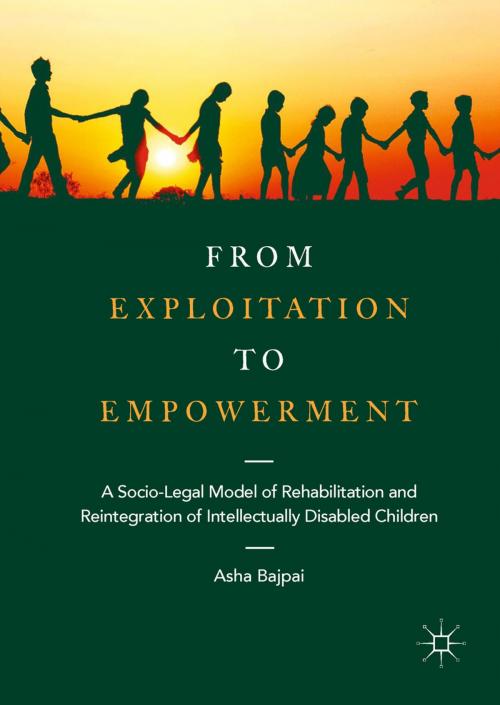From Exploitation to Empowerment
A Socio-Legal Model of Rehabilitation and Reintegration of Intellectually Disabled Children
Nonfiction, Reference & Language, Law, International, Social & Cultural Studies, Social Science, Social Work, Political Science| Author: | Asha Bajpai | ISBN: | 9789811317187 |
| Publisher: | Springer Singapore | Publication: | September 14, 2018 |
| Imprint: | Palgrave Macmillan | Language: | English |
| Author: | Asha Bajpai |
| ISBN: | 9789811317187 |
| Publisher: | Springer Singapore |
| Publication: | September 14, 2018 |
| Imprint: | Palgrave Macmillan |
| Language: | English |
This book presents the outcomes of a field action project at the Tata Institute of Social Sciences (TISS). Project Chunauti (English translation: Project Challenge) focused on a group of intellectually disabled, orphan children who were survivors of abuse, exploitation and neglect, and describes their journey toward empowerment. It offers a vision and a reproducible, adaptable model for rehabilitation that can foster the social re-integration of intellectually disabled orphans at institutions. As the implementation of laws is especially important for vulnerable groups, the book also outlines a socio-legal approach that not only impacts the children directly, but can also bring about policy level reforms.
Project Chunauti was born out of the need to explore options for these children and to set standards for their care, protection, rehabilitation and social re-integration. The core objectives of the project were to provide support and services, including counseling, education, life skills and vocational skills training, as well as medical and psychiatric support to help them overcome the trauma of abuse and exploitation. Its further goal was to train the staff of state-run homes and state authorities, helping them prepare and implement care plans and rehabilitation, combat child sexual abuse and malnutrition, employ positive disciplining, and better understand disabilities. The book also draws on the Project team’s experiences of rolling out the replication process in Maharashtra.
This book highlights the role of the courts, media and other stakeholders in the journey towards empowerment and justice. It is a combination of social-work methods, application and implementation of law and legal advocacy, as well as best practices for protecting children’s rights and developing rehabilitation and re-integration projects for intellectually disabled, orphaned children in India. The interventions detailed here provide a reproducible, adaptable model of intervention for children in institutional care across the country.
This book presents the outcomes of a field action project at the Tata Institute of Social Sciences (TISS). Project Chunauti (English translation: Project Challenge) focused on a group of intellectually disabled, orphan children who were survivors of abuse, exploitation and neglect, and describes their journey toward empowerment. It offers a vision and a reproducible, adaptable model for rehabilitation that can foster the social re-integration of intellectually disabled orphans at institutions. As the implementation of laws is especially important for vulnerable groups, the book also outlines a socio-legal approach that not only impacts the children directly, but can also bring about policy level reforms.
Project Chunauti was born out of the need to explore options for these children and to set standards for their care, protection, rehabilitation and social re-integration. The core objectives of the project were to provide support and services, including counseling, education, life skills and vocational skills training, as well as medical and psychiatric support to help them overcome the trauma of abuse and exploitation. Its further goal was to train the staff of state-run homes and state authorities, helping them prepare and implement care plans and rehabilitation, combat child sexual abuse and malnutrition, employ positive disciplining, and better understand disabilities. The book also draws on the Project team’s experiences of rolling out the replication process in Maharashtra.
This book highlights the role of the courts, media and other stakeholders in the journey towards empowerment and justice. It is a combination of social-work methods, application and implementation of law and legal advocacy, as well as best practices for protecting children’s rights and developing rehabilitation and re-integration projects for intellectually disabled, orphaned children in India. The interventions detailed here provide a reproducible, adaptable model of intervention for children in institutional care across the country.















